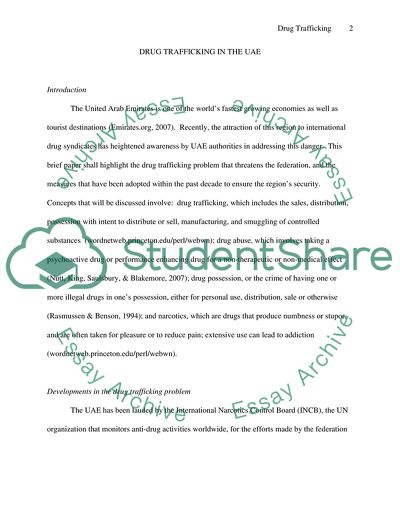Cite this document
(“Drug Trafficking in the UAE Essay Example | Topics and Well Written Essays - 3000 words”, n.d.)
Drug Trafficking in the UAE Essay Example | Topics and Well Written Essays - 3000 words. Retrieved from https://studentshare.org/miscellaneous/1561323-drug-trafficking-in-the-uae
Drug Trafficking in the UAE Essay Example | Topics and Well Written Essays - 3000 words. Retrieved from https://studentshare.org/miscellaneous/1561323-drug-trafficking-in-the-uae
(Drug Trafficking in the UAE Essay Example | Topics and Well Written Essays - 3000 Words)
Drug Trafficking in the UAE Essay Example | Topics and Well Written Essays - 3000 Words. https://studentshare.org/miscellaneous/1561323-drug-trafficking-in-the-uae.
Drug Trafficking in the UAE Essay Example | Topics and Well Written Essays - 3000 Words. https://studentshare.org/miscellaneous/1561323-drug-trafficking-in-the-uae.
“Drug Trafficking in the UAE Essay Example | Topics and Well Written Essays - 3000 Words”, n.d. https://studentshare.org/miscellaneous/1561323-drug-trafficking-in-the-uae.


